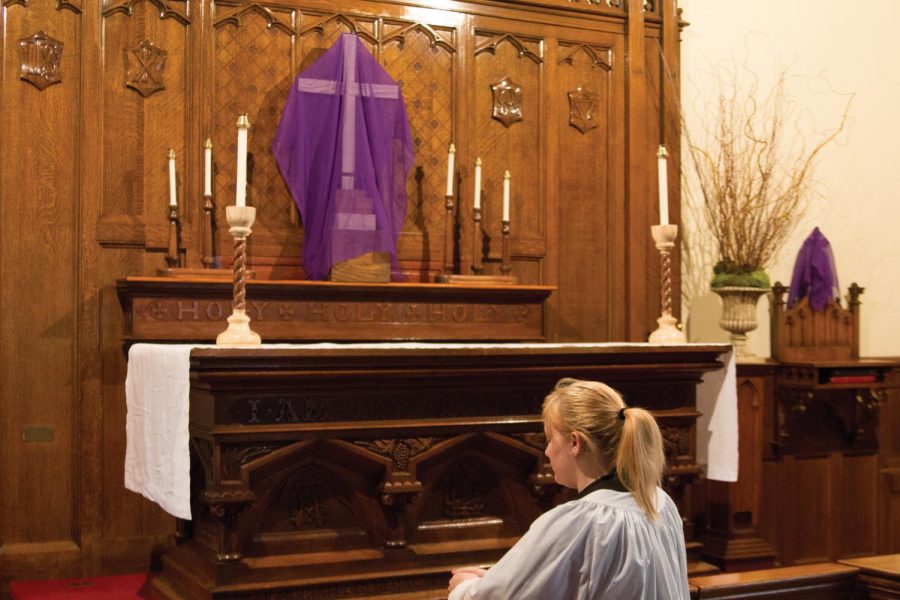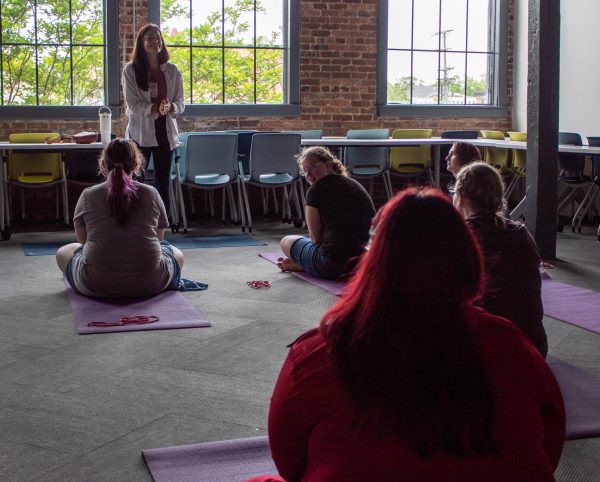UNA students observe Lent to strengthen relationships with God
March 12, 2015
Lent is getting a facelift as people find new ways to observe the traditional Christian season of fasting and reflection.
When someone observes Lent, they typically give something up or take something on, said Rev. Andrew Keyse of Trinity Episcopal Church.
“The key is becoming more aware of the world in which you live,” said Jeffrey Bibbee, chair of the history department. “I don’t think it has to be religiously motivated. It can just be self-improvement.”
Food does not have to be the main focus of Lent. Many people are now giving up bad habits and taking on new healthier habits instead, Bibbee said.
“The easy thing is to give up chocolate or soda,” Keyse said. “We hope it’s something a little more sacrificial than that. Give up something that really bothers you to go without or take on something that is a big deal to take on.”
Keyse said the void created by giving something up during Lent is filled through Christ’s resurrection at Easter.
Junior Will Chaney said he believes a Lenten devotion should be a difficult practice rather than just taking something away, like food.
“I really felt called to try to avoid talking about other people and trying to see the best in everyone I meet or in my life during this Lent,” he said.
The 40-day tradition derives from the story of Christ’s temptation in the wilderness for 40 days found in Matthew 4 of the Bible, Keyse said.
Orthodox Christians, Catholics and Protestant Christians most commonly observe the tradition in preparation for the Easter celebration.
“Why we do Lent is to get closer to Christ through sacrifice or through adding something,” Chaney said. “It’s the intention of what you do that matters. So if you fail to keep up a practice or slip up, and you recognize it, learn something about your faith, or grow as a Christian, then you’ve had a successful Lent.”
Chaney said actions mean nothing unless they are spiritually motivated.
Senior Sarah Swafford said she believes it is important to observe Lent because it is a time of self-reflection and bettering oneself.
Swafford said she is giving up all sweets, soft drinks and sweet tea for Lent. She is also refraining from eating meat, except fish on Fridays.
“The part about giving up something or restraining from something is important to me because it reminds me that God gave his only son to die on the cross for me,” Swafford said. “I can sacrifice something as small as a Mountain Dew for him.”
Seventeen percent of adults practiced Lenten fasting during the past three years, according to a Barna Group study.
Bibbee said he suggests those participating in Lent find a group also observing the season.
He said people who have a support group are more likely to be successful with their fast or new habit.
“If I fail to follow through on the commitment, I think I will personally feel like I have failed God,” Swafford said. “It is a time to reflect on myself and be a better person. The church won’t kick me out, and I don’t think God will strike me with lightning or anything. It would just be a personal failure between me and God.”











